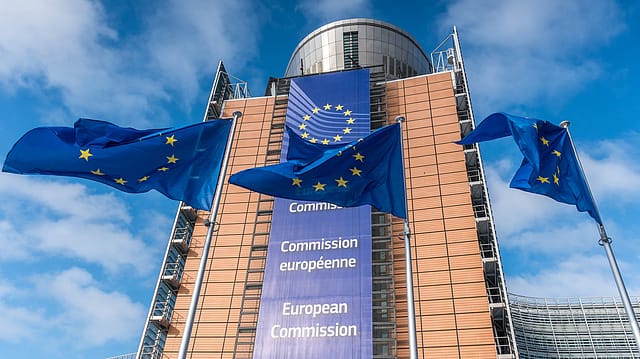Europe to probe Apple, Google and Meta under new digital law
ADVERTISEMENT

The European Commission is investigating Google parent Alphabet, iPhone maker Apple and social media giant Meta for "non-compliance” under the Digital Markets Act.
The 27-nation bloc's executive arm says Meta's "Subscription for No Ads" model is suspected of breaching the DMA rules. "With this new model, users have to pay if they want to use Facebook and Instagram without targeted advertising. And this has forced millions of users across Europe into a binary choice: “pay or consent”. And if you consent, Meta can use your data, generated for example on Messenger, to target ads on Instagram," says the Commission.
As per the Digital Markets Act, gatekeepers must obtain users' consent to use their personal data across different services and this consent must be free.
“We have serious doubts that this consent is really free when you are confronted with a binary choice. With the DMA, users who do not consent should be provided with a less personalised alternative of the service, for example financed thanks to contextual advertising. But they do not have to pay,” the European Commission says.
The European Commission says that Alphabet's own services, such as Google Shopping, Google Flights and Google Hotels, still benefit from a preferential treatment. “It seems that third-party services are not treated in a fair and non-discriminatory manner,” it says.
The Commission is currently checking if Amazon is treating all products on its Amazon Store fairly – and not favouring its own brand products. “The Amazon Store has direct impact not only on countless sellers, retailers and service providers, but also on millions of consumers. It is therefore crucial that Amazon complies with the DMA provisions against self-preferencing,” the regulator says.
January 2026
Netflix, which has been in India for a decade, has successfully struck a balance between high-class premium content and pricing that attracts a range of customers. Find out how the U.S. streaming giant evolved in India, plus an exclusive interview with CEO Ted Sarandos. Also read about the Best Investments for 2026, and how rising growth and easing inflation will come in handy for finance minister Nirmala Sitharaman as she prepares Budget 2026.
Under the DMA, gatekeepers must allow business users, free of charge, to communicate freely with end users. And also to conclude contracts directly with their users. The aim of this provision is to promote competition between alternative sales channels in the app economy. To achieve this, consumers must have access to all the necessary information about their choices. Gatekeepers can no longer prevent their business users from informing their users within the app about cheaper options outside the gatekeeper's ecosystem. That is called anti-steering and is now forbidden by law.
"The way that Apple and Alphabet implemented the DMA rules on anti-steering seems to be at odds with the letter of the law. Apple and Alphabet still charge various recurring fees and still limit steering. We will investigate to what extent these fees and limitations defeat the purpose of the anti-steering provision and by that, limit consumer choice," the European Commission says.
These cases are expected to be concluded in the next 12 months.
